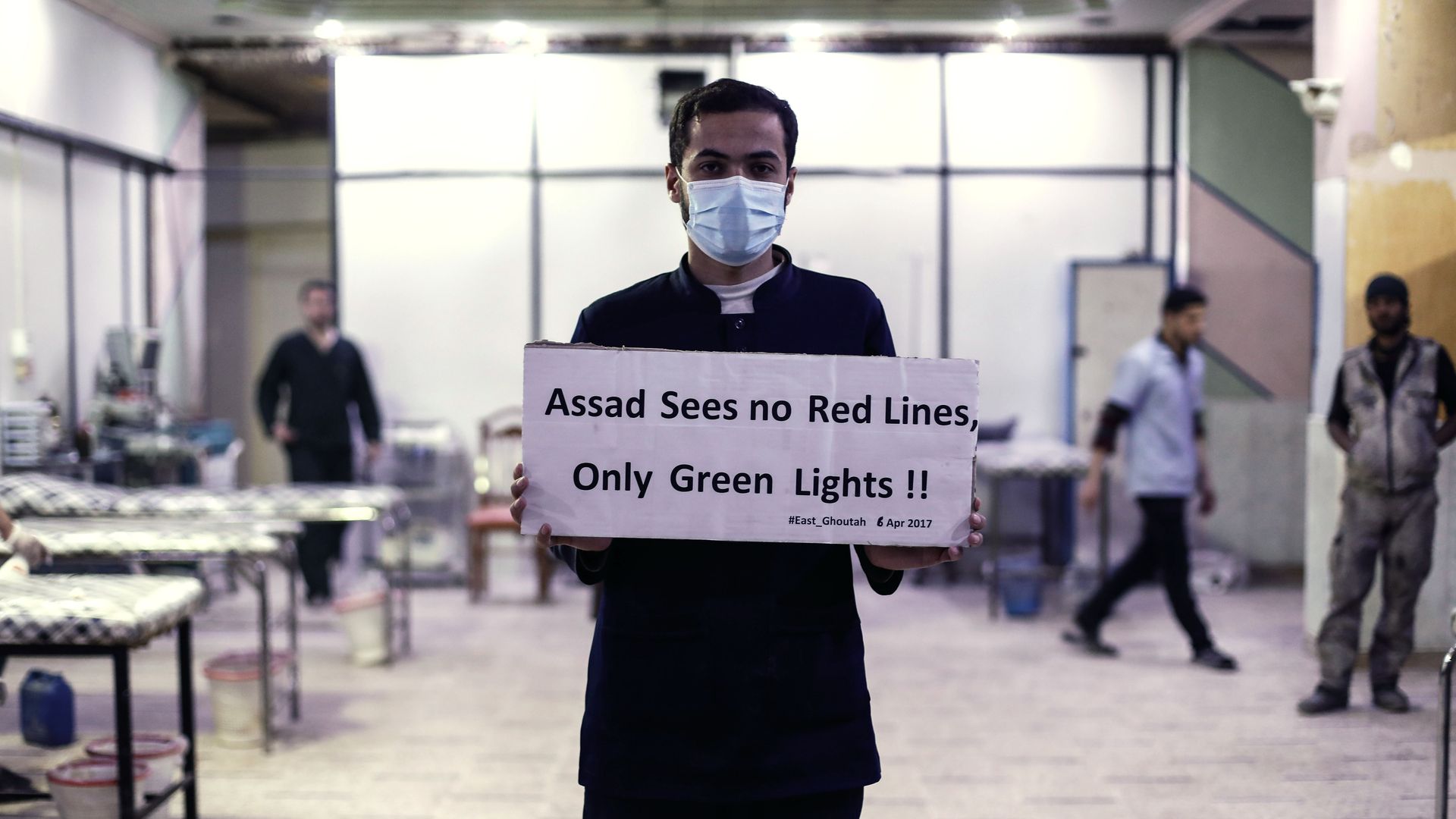Updated Apr 10, 2018 - World
Expert VoicesAs Trump weighs response to chemical attacks, U.S. future in Syria still unclear
Add Axios as your preferred source to
see more of our stories on Google.

A medical worker in Damascus condemning the chemical weapons attack in Khan Shaykhun on April 6, 2017, that prompted President Trump to order a military strike. Photo: Sameer Al-Doumy/AFP via Getty Images
